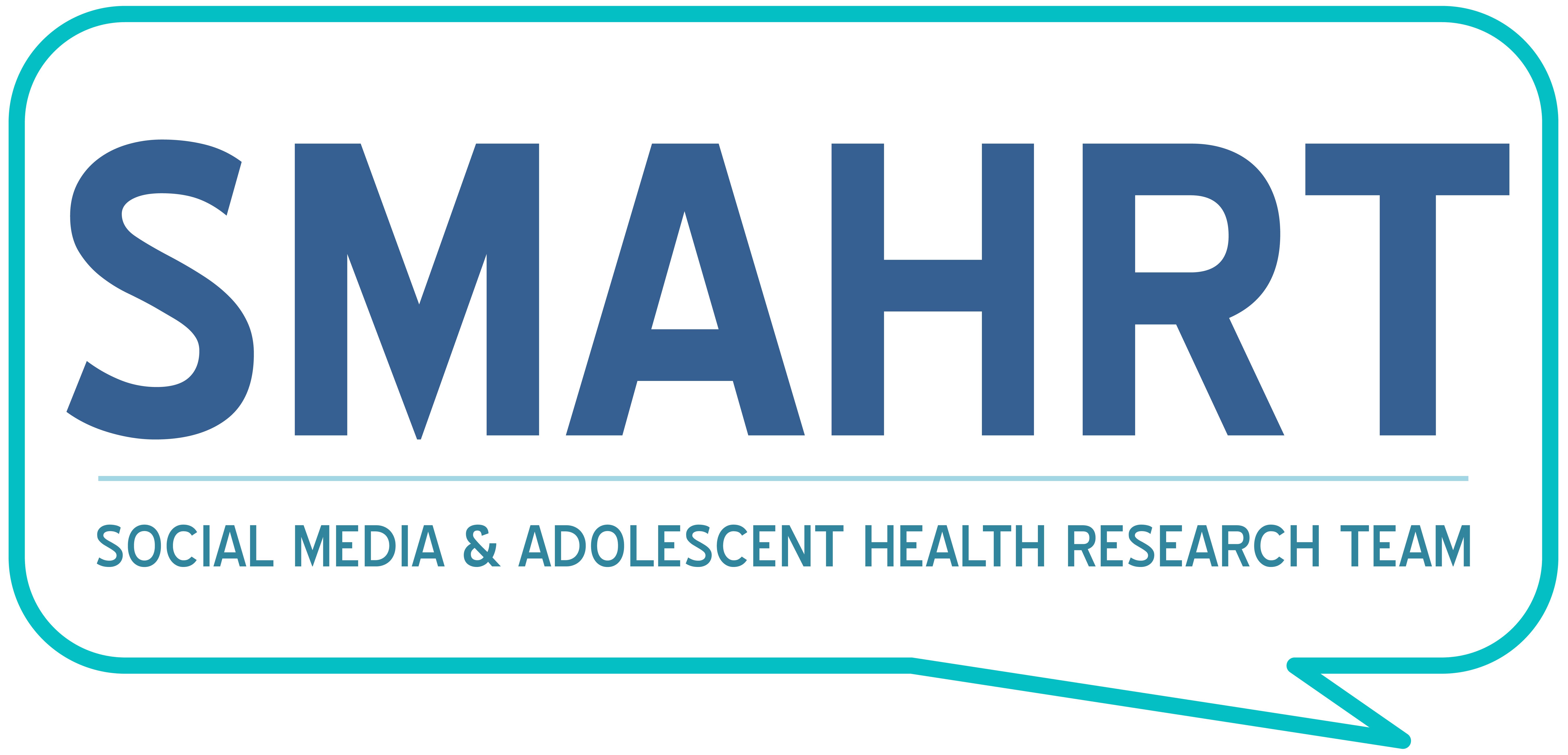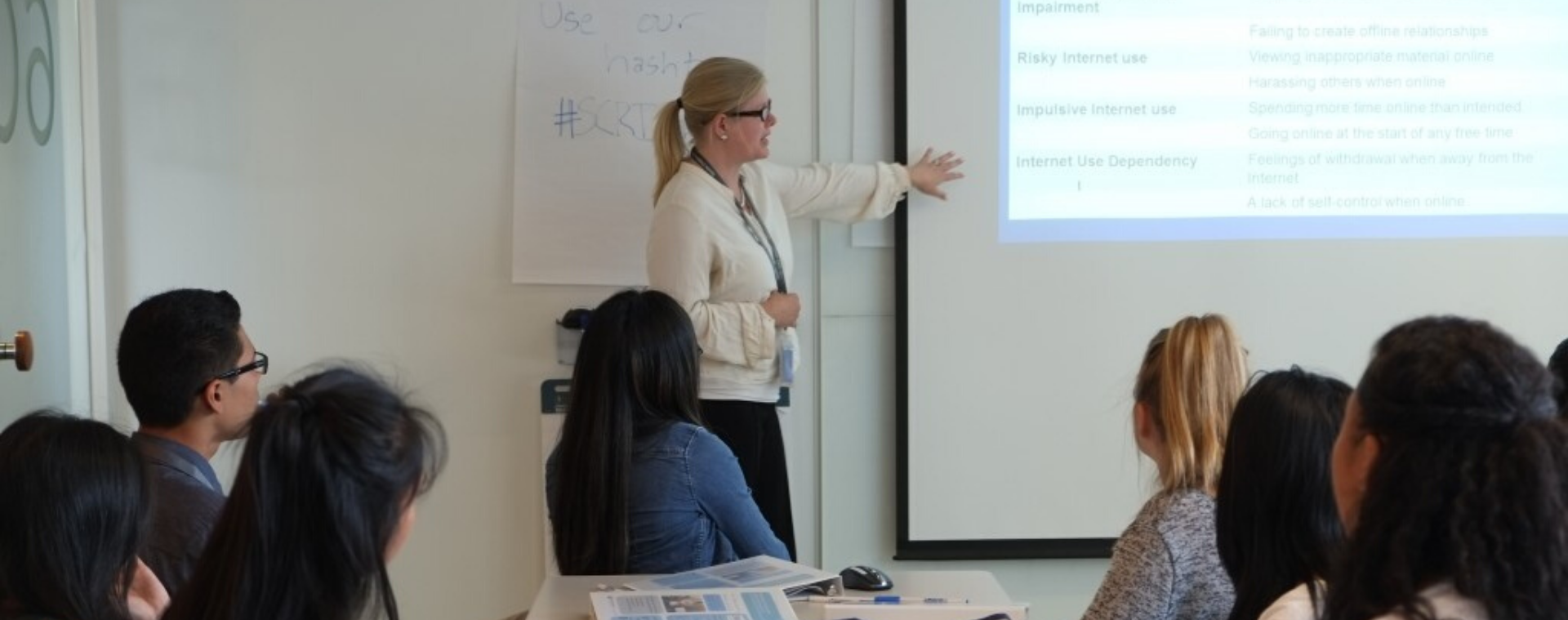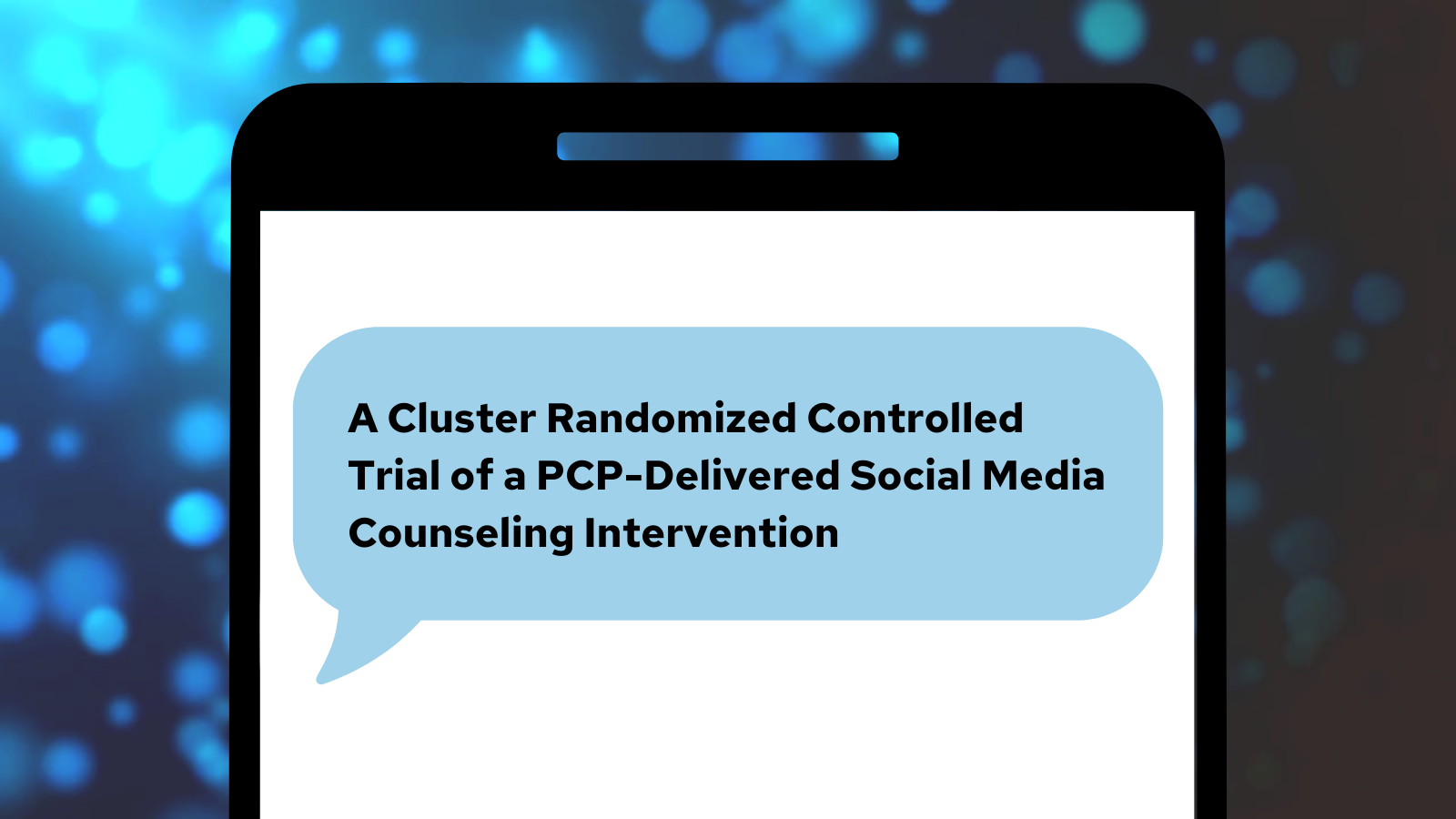Dr. Megan Moreno, SMAHRT principal investigator and interim chair of the department of pediatrics, is lead author on A Cluster Randomized Controlled Trial of a PCP-Delivered Social Media Counseling Intervention. Data was collected as part of the Adolescent Health in Pediatric Practice (AHIPP) research study that was conducted in the AAP-based Pediatric Research in Office Settings Network.
Let’s dig into the details of this study.
What is a cluster randomized controlled trial?
A cluster randomized controlled trial, also known as a cluster RCT, is where a group of participants are randomly put into one of two groups. In this study primary care practices were randomly put into either a group that received a tobacco cessation intervention or a group that conducted the social media counseling intervention.
What is social media counseling intervention?
The social media counseling intervention (SMCI) is a tool that trains primary care providers in screening for and offering counseling to promote safe social media use in teens. In the intervention a primary care provider and their teen patient discussed concepts such as balance, boundaries, and communication.
They asked questions like…
How are teens balancing offline and online time?
Are teens being mindful of what they are posting online? Are they setting boundaries around the types of content they are viewing online?
Are they having regular conversations with their parents or guardians about their experiences online and household media rules?
Who participated in this study?
Primary care practices were enrolled in the study. In order to participate they had to be a member of PROS, which includes pediatricians, nurse practitioners, and physician assistants. They also had to see one teen patient a week and have an estimated teen smoking rate of at least 10% of all teens that they saw.
Teens themselves were also participants in this study. They had to be 14 to 25 years old and going to the doctor for regular well or sick visits, have telephone and mailing address access, speak English, and ability to consent or assent to the study.
What did the researchers find?
A total of 120 primary care practices enrolled in the study. Primary care practices that were given the social media counseling intervention were more likely to provide social media counseling. Teens who received the social media counseling intervention from their primary care provider were more likely to report communication with their parents or guardians about their social media use compared to teens who were in the active control group.
What does this mean for society?
Providing training specifically around social media counseling for pediatricians could increase a provider’s confidence to have discussions with their teen patients about healthy social media use behaviors that could aid in the overall wellbeing for teens. Given that previous studies have shown that most pediatricians don’t get trained in this topic, this education may be an important area of future study.
What else is out there on this topic?
Social media can have both positive and negative effects on adolescent health
The COVID-19 pandemic changed society’s relationship with social media and technology. Social media for teens led to connection with friends, family, and a community at a time where we were all isolated. Social media was also a tool for teens to access information about mental and physical health, as well as healthcare access. At this time providers started also using social media as a tool to promote health behaviors in teens.
They are unique individuals who have different relationships and ways of using social media. A teen’s environment can also impact their relationship with technology and social media. Parents and guardians play an important role in shaping healthy social media use. Parents and guardians who work with their teens to create shared rules around technology use could lead to high levels of well-being, sleep, and physical activity.
Children and teens at the center
For a decade, kids and teens have been leading the way in using social media and technology, however, when this topic is typically discussed in the media or elsewhere adults are framing the narrative. The American Academy of Pediatrics Center of Excellence on Social Media and Youth Mental Health is framing a new narrative where they aim to build upon existing evidence, but children and teens will be at the center of this work.


